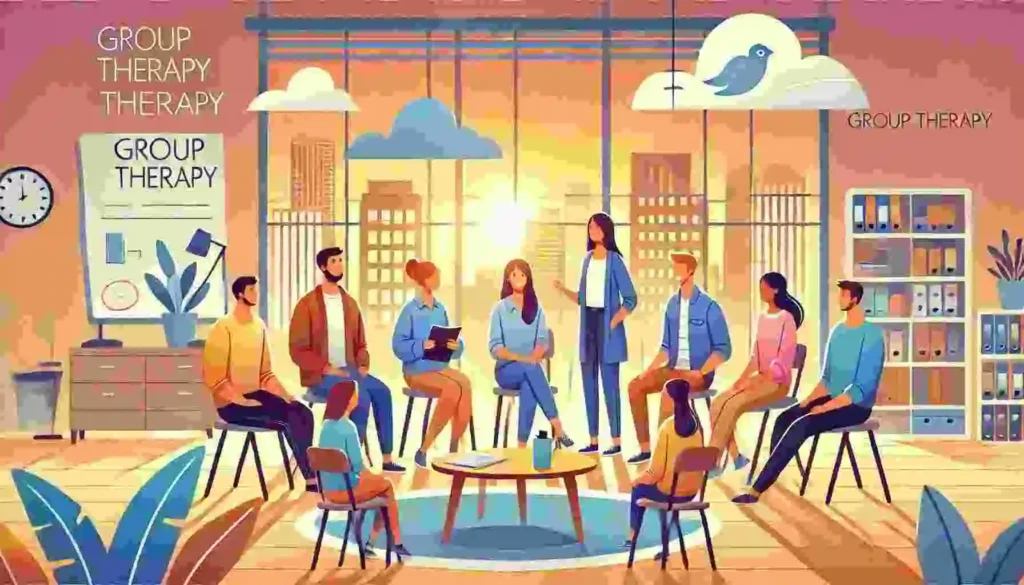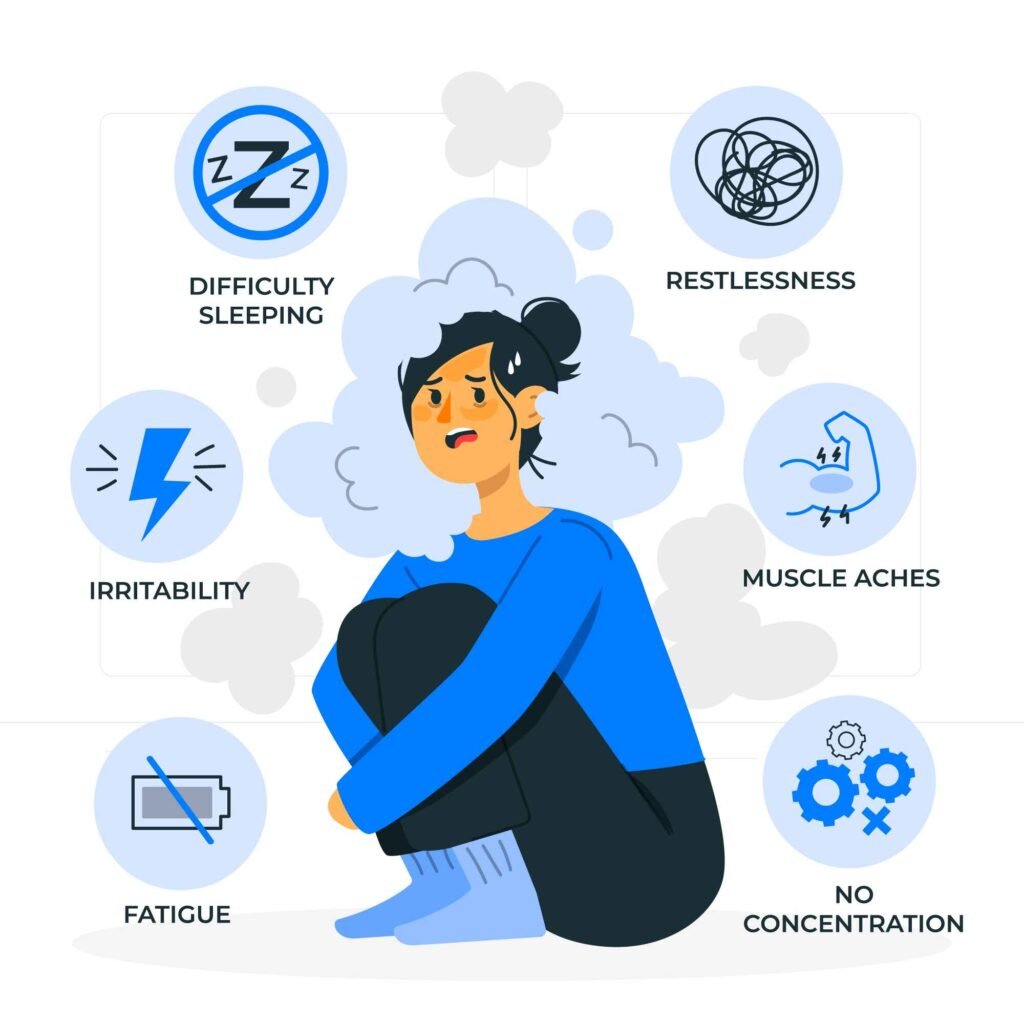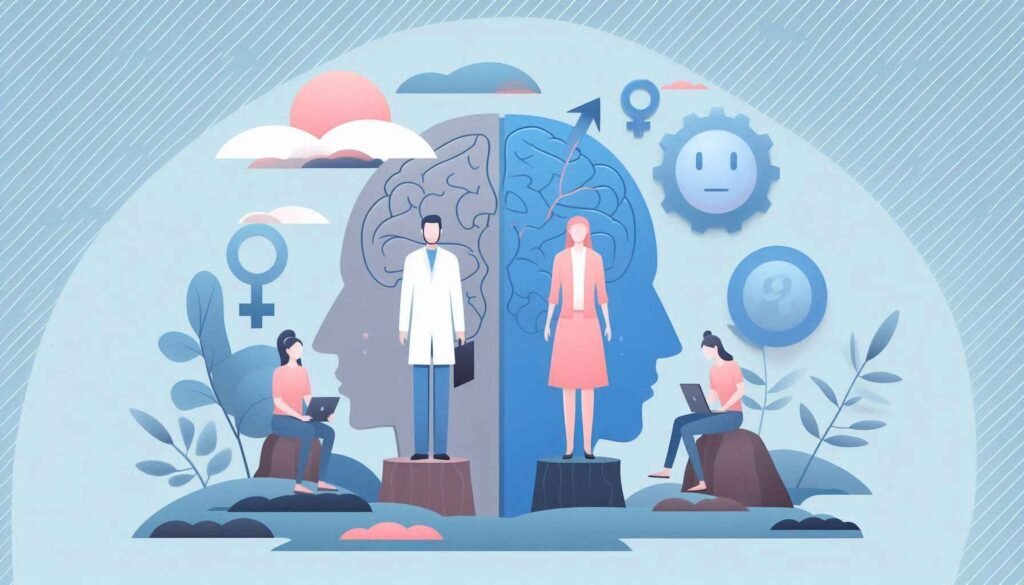
Group Therapy: Pros and Cons: Benefits and challenges of participating in group therapy sessions
Group Therapy: Pros and Cons
Benefits and Challenges of Participating in Group Therapy Sessions
Group therapy can be a powerful way to work through personal challenges, learn coping strategies, and foster connections. But just like any therapeutic approach, it comes with its own set of advantages and challenges. Understanding the pros and cons can help you decide if this type of therapy is the right fit for you. In this blog post, we’ll break down the benefits and challenges of group therapy sessions, offering you a comprehensive view of what to expect.
What is Group Therapy?
Group therapy is a form of psychotherapy where a small group of individuals meets regularly under the guidance of a trained therapist. These sessions provide a safe and confidential space where participants can share their thoughts, experiences, and emotions while receiving support from both the therapist and fellow group members.
Typically, group therapy focuses on specific issues such as anxiety, depression, trauma, addiction, or grief. Groups often consist of 5-12 members and may meet weekly, bi-weekly, or monthly depending on the program’s structure and goals.
The Pros of Group Therapy
1. Built-In Support System
One of the most significant benefits of group therapy is the built-in support system. Sharing your struggles with others who face similar challenges can foster a sense of connection and reduce feelings of isolation. This supportive environment can help you realize that you’re not alone in your journey.
When group members share their stories, it creates a bond and builds trust. Knowing others are rooting for your success can be incredibly motivating and comforting.
2. Diverse Perspectives and Insights
In a group setting, you benefit from the diverse perspectives of multiple people. Hearing how others cope with similar challenges can give you new ideas and strategies for managing your own issues. Different viewpoints can help you see your situation from angles you might not have considered.
For example, if you’re struggling with anxiety, a group member might share a breathing technique that has helped them. You might learn something new that you can apply immediately.
3. Cost-Effective Compared to Individual Therapy
Group therapy tends to be more affordable than one-on-one therapy sessions. Because the therapist’s time and expertise are shared among several participants, the cost per person is usually lower. This makes therapy more accessible for those on a tight budget.
If you’ve been hesitant to pursue therapy due to financial constraints, group therapy could be a cost-effective way to receive professional help.
4. Development of Social Skills
For those who struggle with social interactions, group therapy provides a safe environment to practice social skills. You learn how to express yourself, listen actively, give feedback, and resolve conflicts—all valuable skills that can be applied in daily life.
If you deal with social anxiety or communication issues, group therapy can help you build confidence in your ability to connect with others.
5. Feeling of Accountability
Being part of a group fosters a sense of accountability. Knowing that you have to show up, participate, and share your progress can motivate you to stick with your therapy goals. Group members often hold each other accountable in a compassionate way, which helps maintain progress.
For example, if you’re working on managing anger or quitting a harmful habit, knowing your group will check in with you can help keep you on track.
6. Learning Through Observation
Sometimes, watching how others deal with their issues can be just as enlightening as direct participation. Group therapy allows you to observe how people handle challenges, receive feedback, and implement coping strategies. This observational learning can provide valuable lessons without the pressure of always being in the spotlight.
The Cons of Group Therapy
1. Fear of Judgment or Embarrassment
One of the main challenges of group therapy is the fear of being judged or feeling embarrassed when sharing personal information. Opening up to strangers can be daunting, especially if you’re dealing with sensitive or painful topics.
While group therapy aims to be a safe and non-judgmental space, it may take time to feel comfortable and secure enough to share freely.
2. Less Individual Attention
In group therapy, the therapist’s attention is divided among several participants. This means you may not receive the same level of personalized care as you would in individual therapy. If you have complex or deeply personal issues, you might feel like you’re not getting the in-depth support you need.
For those requiring focused attention or tailored strategies, combining group therapy with individual sessions could be a more effective approach.
3. Confidentiality Concerns
While confidentiality is a fundamental rule in group therapy, there is always a risk that a group member could breach this trust. Unlike in one-on-one therapy, where confidentiality is solely the therapist’s responsibility, group therapy relies on the integrity of each participant.
If you’re worried about your personal information being shared outside the group, this might be a barrier to fully engaging in the sessions. Tips for Getting the Most Out of Group Therapy
1. Choose the Right Group for Your Needs
Not all group therapy sessions are the same. Some focus on specific issues such as addiction, grief, anxiety, or trauma, while others may be more general. Before committing, research or ask your therapist about the group’s focus and structure. Make sure the group aligns with your personal challenges and goals.
You can also ask questions like:
- How many members are in the group?
- How often does the group meet?
- What are the ground rules for participation?
Finding a group where you feel understood and supported is crucial for a positive experience.
2. Be Open and Honest
The more open and honest you are in group therapy, the more you’ll benefit. Sharing your thoughts and feelings might be uncomfortable at first, but vulnerability fosters connection and healing. Remember that everyone is there for similar reasons—they want to grow, heal, and support one another.
If you’re struggling to open up, start small. Share a little at a time and observe how the group responds. You may be surprised by the support and encouragement you receive.
3. Listen Actively and Give Thoughtful Feedback
Group therapy is a two-way street. While sharing your own experiences is valuable, listening actively to others is equally important. Pay attention to what your peers are saying, and offer thoughtful feedback when appropriate. This not only helps them but can also provide insights that apply to your own life.
Active listening shows respect and fosters a stronger group dynamic. It also helps you develop empathy and better understand different perspectives.
4. Respect Boundaries and Confidentiality
Confidentiality is the cornerstone of group therapy. To create a safe environment, everyone must respect each other’s privacy. Avoid discussing what you hear in group sessions outside of the group. Trust is built when members know their stories won’t be shared elsewhere.
Additionally, respect personal boundaries. Some people may not be ready to share certain aspects of their lives, and that’s okay. Creating a culture of respect and trust benefits everyone involved.
5. Be Patient with the Process
Healing and personal growth take time. Group therapy is not a quick fix, but a process that unfolds gradually. You may not see immediate results, and that’s perfectly normal. Be patient with yourself and the group. Consistency and persistence are key to making progress.
Even if you feel frustrated or hesitant, try to stick with it. Many people find that the benefits become more apparent over time.
Common Misconceptions About Group Therapy
1. “I’ll Be Forced to Share Everything”
One of the biggest misconceptions about group therapy is that you’ll be forced to share your deepest secrets right away. In reality, participation is voluntary. You share what you’re comfortable with, and no one will pressure you to divulge more than you’re ready to.
The goal of group therapy is to create a safe space where sharing happens naturally. Most people find that as trust builds, they feel more comfortable opening up.
2. “Group Therapy is Only for People with Severe Problems”
Some people believe that group therapy is only for those with severe mental health issues. This is not true. Group therapy can be beneficial for anyone facing challenges, whether they’re mild, moderate, or severe. Common issues addressed in group therapy include stress, relationship problems, self-esteem, and personal growth.
No matter where you are on your mental health journey, group therapy can offer valuable support and insights.
3. “I Won’t Get Enough Individual Attention”
While it’s true that the therapist’s attention is divided among the group, this doesn’t mean you won’t get the help you need. Group therapy offers a different kind of support—one that comes from shared experiences and peer feedback. In some cases, this collective approach can be more powerful than one-on-one therapy.
If you need more focused attention, consider supplementing group therapy with individual sessions. Many people find that combining both approaches leads to the best outcomes.
Who Can Benefit the Most from Group Therapy?
1. People Struggling with Isolation
If you often feel alone in your struggles, group therapy can help combat isolation. Connecting with others who face similar challenges can provide a sense of belonging and community. This is especially helpful for individuals dealing with grief, chronic illness, or social anxiety.
2. Those Looking for Peer Support
Sometimes, hearing from peers who understand your experience can be more impactful than advice from a professional. Group therapy offers a platform where you can give and receive support from people who “get it.”
3. Individuals Seeking Personal Growth
Group therapy isn’t just for addressing specific problems—it can also be a tool for personal development. If you’re looking to improve your communication skills, build confidence, or gain new perspectives, group therapy can be a valuable experience.
4. People in Recovery Programs
For individuals recovering from addiction, group therapy is often a cornerstone of the healing process. Programs like Alcoholics Anonymous (AA) and Narcotics Anonymous (NA) are based on the principles of group support, accountability, and shared experiences.
Combining Group Therapy with Other Forms of Treatment
Group therapy can be even more effective when combined with other therapeutic approaches. Here are some ways to integrate it into a broader treatment plan:
- Individual Therapy: Provides personalized attention to address deeper issues.
- Medication Management: For those dealing with conditions like anxiety or depression, medication prescribed by a psychiatrist can complement the benefits of group therapy.
- Self-Help Strategies: Techniques such as mindfulness, journaling, and exercise can reinforce what you learn in group therapy sessions.
A well-rounded approach can maximize your chances of achieving your mental health goals.
How to Find a Group Therapy Program
1. Ask Your Therapist or Doctor
If you’re currently seeing a therapist or doctor, ask for recommendations. They can help you find a group that fits your needs and preferences.
2. Search Online Directories
Websites like Psychology Today, Therapy Groups, and local mental health organizations often have directories of available group therapy sessions. These listings typically include information about the group’s focus, meeting times, and fees.
3. Check Community Centers and Hospitals
Many community centers, hospitals, and clinics offer group therapy programs. These groups may be led by licensed therapists or trained facilitators and are often more affordable than private practice options. Overcoming Common Challenges in Group Therapy
Group therapy can be incredibly rewarding, but like any therapeutic approach, it can present challenges. Here are some practical strategies to help you overcome these common hurdles and make the most of your group therapy experience.
1. Managing Anxiety About Speaking Up
It’s natural to feel anxious about sharing your thoughts in front of a group, especially if you’re new to the process. Remember that everyone in the room is there for similar reasons, and your feelings are valid.
Tips to Ease Anxiety:
- Start Small: You don’t need to dive into deep issues immediately. Begin by introducing yourself or sharing a small observation.
- Practice Mindfulness: Use calming breathing exercises before and during the session.
- Remind Yourself: Everyone in the group is there to support, not judge you.
As you gradually open up, your confidence will grow, and speaking will become easier.
2. Handling Difficult Personalities
Sometimes, group members may have personalities that clash with your own, making it harder to feel at ease. This is a normal part of group dynamics.
How to Cope:
- Focus on the Goal: Remember that everyone is there to heal and grow.
- Use It as a Learning Opportunity: Group therapy can help you practice patience, empathy, and conflict resolution.
- Talk to the Therapist: If someone’s behavior is particularly disruptive, discuss it with the therapist privately.
The therapist is there to ensure that the group remains a safe and productive environment for everyone.
3. Staying Engaged Over Time
Long-term group therapy can sometimes feel repetitive or stagnant. Staying engaged is key to getting the most benefit.
Ways to Stay Engaged:
- Set Personal Goals: Define what you want to achieve from each session.
- Reflect on Your Progress: Keep a journal to track insights, breakthroughs, and challenges.
- Offer Support to Others: Engaging with group members’ stories can keep you connected and invested.
Remember, growth isn’t always linear. Trust the process and stay committed.
Success Stories: Real-Life Benefits of Group Therapy
Hearing about others’ positive experiences with group therapy can inspire confidence and encourage you to give it a try. Here are some real-life examples of how group therapy has helped individuals overcome challenges.
Case Study 1: Overcoming Social Anxiety
Jane, a 28-year-old marketing professional, struggled with severe social anxiety. She often felt paralyzed when speaking in groups or meeting new people. Through group therapy, Jane learned that she wasn’t alone in her experience. By participating in role-playing exercises and receiving support from peers, her confidence grew. Today, she navigates social situations with much less fear and hesitation.
Key Takeaway: Group therapy provides a safe space to practice social skills and build confidence.
Case Study 2: Healing from Grief
After losing her husband, Maria, a 50-year-old teacher, felt isolated and overwhelmed by grief. In a bereavement support group, she found comfort in sharing her story with others who understood her pain. The group’s collective strength and shared coping strategies helped Maria process her grief and find a new sense of purpose.
Key Takeaway: Group therapy can offer a sense of community and shared understanding during difficult times.
Case Study 3: Recovering from Addiction
David, a 35-year-old musician, joined a group therapy program as part of his addiction recovery. The group provided accountability, structure, and a network of people who understood his struggles. The shared experiences and support helped David stay sober and develop healthier coping mechanisms.
Key Takeaway: Group therapy fosters accountability and long-term support for those in recovery.
How to Prepare for Your First Group Therapy Session
If you’re considering group therapy but aren’t sure how to prepare, here are some steps to help you feel more confident and ready for your first session.
1. Understand the Group Guidelines
Most groups have guidelines to ensure a respectful and safe environment. These might include rules about confidentiality, speaking time, and giving feedback. Familiarize yourself with these rules beforehand so you know what to expect.
2. Set Personal Goals
What do you want to achieve from group therapy? Setting clear, realistic goals can help you stay focused and motivated. Goals might include:
- Improving communication skills
- Learning to manage anxiety
- Building a support network
3. Be Ready to Listen
Active listening is just as important as sharing your own story. Be open to hearing others’ experiences, and you may find valuable insights that apply to your life.
4. Bring a Notebook
Taking notes can help you remember key takeaways, insights, and feedback. Journaling after each session can also help you reflect on your progress.
5. Be Patient with Yourself
It’s okay if you don’t feel comfortable right away. Give yourself time to adjust to the group dynamic. Everyone’s journey is different, and it’s perfectly fine to take things at your own pace.
Alternatives to Group Therapy
If group therapy doesn’t feel right for you, there are other forms of therapy that might be a better fit. Here are a few alternatives:
1. Individual Therapy
In one-on-one therapy, you receive personalized attention from a therapist. This can be beneficial if you need to explore complex or deeply personal issues in a private setting.
2. Online Therapy Groups
If attending in-person sessions is challenging, online group therapy offers a convenient alternative. Many platforms provide virtual support groups where you can connect from the comfort of your home.
3. Support Groups
Unlike formal group therapy, support groups are often peer-led and focus on shared experiences. Examples include Alcoholics Anonymous (AA), grief support groups, and parenting support groups.
4. Self-Help Resources
Books, podcasts, and online courses can supplement your mental health journey. While these resources don’t replace therapy, they can provide valuable insights and tools.



